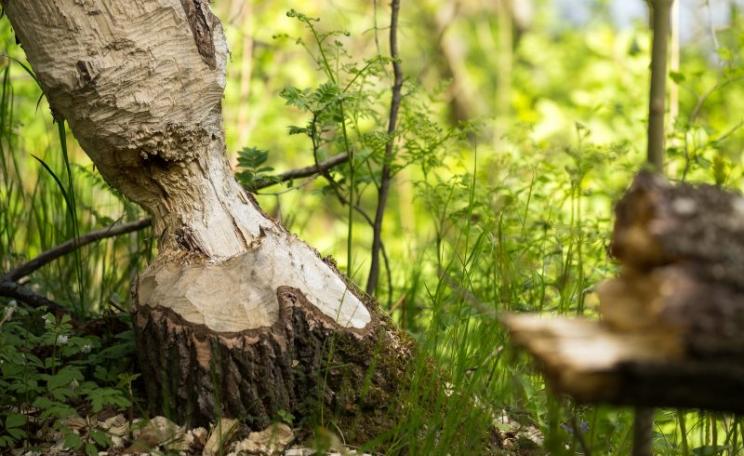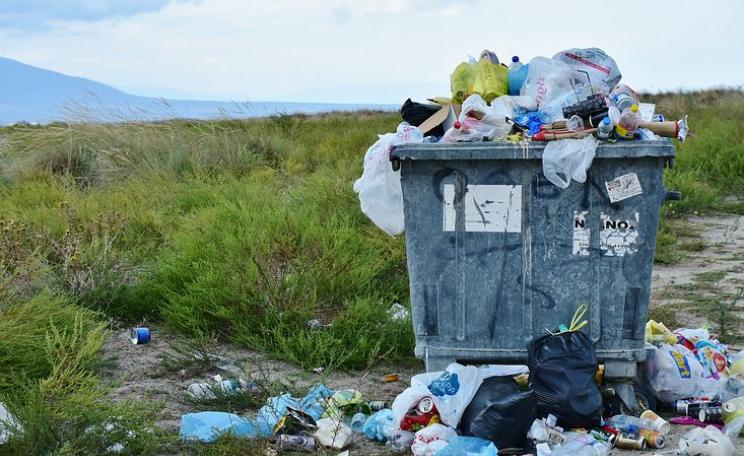Beavers can deliver huge benefits for people and wildlife through improved water quality, reduced flood risk and habitats for a wide range of species. We urge the UK Government to put in place the same measures to protect beavers in England and Wales.
The Scottish Government is minded to allow beavers to remain in the wild in Scotland under the full protection of EU and UK wildlife law, Environment Secretary Roseanna Cunningham announced today.
This decision follows the escape of beavers from a wildlife park in the Tay catchment in 2001. A viable population established on the Tay and the aquatic mammals have now spread over hundreds of square miles into the Earn catchment. They have been observed as far west as Dochart, near Argyll, and in the headwaters of the Forth.
But as reported on The Ecologist in December 2015, farmers and landowners were permitted by the Scottish government to shoot them in an apparent breach of the EU's Habitats & Species Directive, causing widespread public concern. Beavers are native across the UK but were hunted to extinction in the 16th century.
Work has now begun to ensure beavers can be added to Scotland's list of protected species as soon as possible. It will be the first time a mammal has been officially reintroduced to the UK.
Ms Cunningham added that the species will have to be actively managed, in line with practices in other European countries. She and other Scottish Ministers have agreed that:
- Beaver populations in Argyll and Tayside can remain
- The species will receive legal protection, in accordance with the EU Habitats Directive.
- Beavers will be allowed to expand their range naturally.
- Beavers should be actively managed to minimise adverse impacts on farmers and other land owners.
- It will remain an offence for beavers to be released without a licence, punishable by up to two years imprisonment and an unlimited fine.
Helen Meech of Rewilding Britain said: "We are delighted that beavers will be allowed to remain in the wild in Scotland. As recent trials have shown, beavers can deliver huge benefits for both people and wildlife through improved water quality, reduced flood risk and habitats for a wide range of species. We also welcome measures to manage the impact of beavers on farmers and other land owners."
She added that similar protections should be extended to wild beaver populations across the UK: "We urge the UK Government to put in place the same measures to protect and manage beaver populations in England and Wales."
'Beavers promote biodiversity by creating new ponds and wetlands'
Environment Secretary Roseanna Cunningham said: "I have been determined to find a pragmatic approach, which balances the biodiversity benefits of reintroducing beavers with the obvious need to limit difficulties for our farmers.
Beavers can deliver huge benefits for people and wildlife through improved water quality, reduced flood risk and habitats for a wide range of species. We urge the UK Government to put in place the same measures to protect beavers in England and Wales.
"I want to put on record my appreciation of the efforts of the Scottish Wildlife Trust, NFU Scotland, the Royal Scottish Zoological Society, and Scottish Land and Estates who have worked in partnership to set out a way forward.
"Beavers promote biodiversity by creating new ponds and wetlands, which in turn provide valuable habitats for a wide range of other species. We want to realise these biodiversity benefits while limiting adverse impacts on farmers and other land users. This will require careful management.
"Today's announcement represents a major milestone in our work to protect and enhance Scotland's world renowned biodiversity. But I want to be absolutely clear that while the species will be permitted to extend its range naturally, further unauthorised releases of beavers will be a criminal act.
"Swift action will be taken in such circumstances to prevent a repeat of the experience on Tayside."
Research has shown that beavers provide important benefits for biodiversity, and watershed management. However, the animals can also cause some difficulties for farmers and land managers in agricultural areas due to the damming of rivers and streams, and consequent local flooding.
Now let's introduce them north of the Great Glen!
Welcoming the Scottish government's decision to allow reintroduced beavers to remain in the country announced today, Trees for Life said that it plans to move ahead with investigating the possibilities for bringing beavers to areas north of the Great Glen, working with local communities to identify where they might live without perceived adverse impacts.
Steve Micklewright, Trees for Life's Chief Executive said: "Today's decision means that beavers can naturally spread through Scotland in the future. There is a lot of space in the Highlands where they could thrive, improving the region for other wildlife and providing a tourist attraction that will benefit the local economy."
However, the main obstacle to the natural spread of beavers to the Highlands is geography, he added: "The Great Glen presents a natural barrier to beavers colonising the area on their own from the existing populations in Argyll and Tayside, so the only way to be sure they will return to the northwest Highlands would be to give them a helping hand.
"While it is certain that beavers could live in the Highlands, the next step is to ensure they would be a welcome addition to the landscape. That is why we plan to work out where they would be welcome. Then we plan to enter in to dialogue with the government to explore how we can help them to return to those areas."
Advice and assistance to farmers
The impacts of beavers in Scotland have been closely monitored by Scottish Natural Heritage (SNH) at both the official Scottish Beaver Trial site in Knapdale in Argyll and on Tayside.
A study commissioned by SNH showed the beavers were not to blame for floods takiong place last winter. And last spring a Stirling University study based on 13 years observation was published, showing that beavers actually slow floodwaters and thus reduce the impact of flooding, while also increasing biodiversity, assisting soil retention and filtering out pollutants.
The Scottish Government is now required by law to complete a Habitats Regulations Assessment and consider a Strategic Environmental Assessment. Management techniques to prevent beaver damage, such as controlling flow through dams, or protecting valuable trees can be carried out without a licence.
More intensive management techniques, up to and including lethal control, are permitted under the Habitats Regulations for specified purposes and subject to there being no other satisfactory solution, and no adverse effect on the conservation status of the species.
This is the framework that applies in most other European countries and allows beavers to be managed to prevent serious damage to land uses such as agriculture, forestry and fisheries.
The Scottish Government will provide advice and assistance to farmers in understanding their options and helping them implement mitigation and prevention measures.
Oliver Tickell is contributing editor of The Ecologist.







